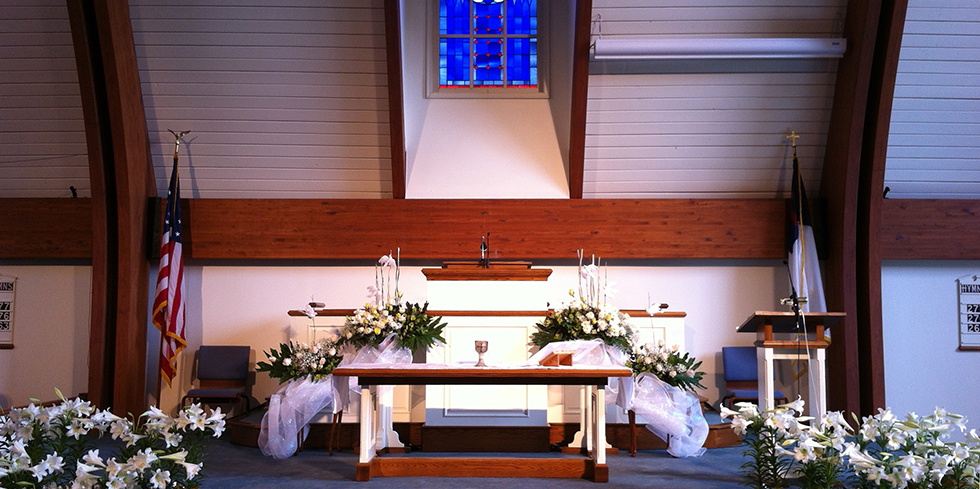What is Worship?
Have you had enough of unfocussed contemporary church services? Do you find spontaneous extempore public prayer all too predictable? Do you want Christian meetings full of depth and maturity? Do you long for theologically-rich, doctrinally-clear gatherings that will form people for a lifetime of Christian service? Have you ever opened the Anglican 1662 Book of Common Prayer?
Worship at All Souls Anglican Church according to the Book of Common Prayer is rigorously biblical, where public worship is a holy assembly called into existence by the Word of God. Our response to God’s Word results in a dialogue that is both solemn and joyous.
When you worship at All Souls Anglican Church you will hear the convicting truth of God’s Law, and confess your sins in the comfort of the Gospel. You will gain a deeper understanding God’s great work of redemption in the preaching of God’s Word, and you will behold regularly Christ’s body broken for sinners and spiritually receive and feed upon him for your comfort and edification.
Finally, you will be commissioned for a life of gratitude and service.
Celebrating the Lord’s Supper
On the first Sunday of the month All Souls Anglican Church strives to celebrate the Lord’s Supper according to the Lord’s command. With the Apostle Paul and as the words of the Book of Common Prayer’s Exhortation commands, we desire to come to the Supper worthily, self-aware, and discerning rightly the body of Christ (1 Corinthians 11.17 – 34).
A chief blessing of the Supper is its sealing function on those who truly belong to Christ. It is not necessary to belong to any particular church or denomination to partake. Members of our sister confessional churches, as well as all those who are members in good standing at gospel-believing churches, are welcome at the Lord’s table.
We do not, however, indiscriminately encourage all visitors to commune. With Paul, we ask that you carefully examine yourself, your sinfulness, and your faith, your understanding of the sacrament, and your relation to Christ in the church. Please read and prayerfully consider the following expectations before joining us at the Lord’s Table:
- Baptism in the Name of the Father, of the Son, and of the Holy Spirit
- Belief in the articles of the Apostle’s and Nicene Creeds
- Membership in a gospel-believing church
- Affirmation of the presence of Christ in the sacrament as taught in our confessional statement, The Thirty-Nine Articles: “The body of Christ is given, taken and eaten in the Supper only in a heavenly and spiritual manner. The means by which the body of Christ is received and eaten in the Supper is faith.”
We welcome the opportunity to discuss our view of the Lord’s Supper further with you.
What is Evening Prayer?
Evening Prayer or its nickname, Evensong, is a 45-minute order of worship from the 1662 Anglican Book of Common Prayer set in modern English by All Souls. Its sister service is Mattins, which is the nickname for the service of Morning Prayer, also from the Book of Common Prayer. Together with the Lord’s Supper (also known as the Holy Communion Service and instituted for his disciples by Jesus himself), these three services are the principal order of worship in the Anglican tradition since the year 1549, which was when the Book of Common Prayer was first authorized for the Church of England.
The then Archbishop Thomas Cranmer developed both Mattins and Evensong from the pattern of the services of prayer of the Medieval English Church, both found in the monastery and local churches. These services were developed over about 1000 years from about the year 500 in the early church. The first words of “O Lord, open our lips.” “O God make speed to save us” reach all the way back to the Old Testament. Our service has a very long history!
After these verses are sung or said by the minister and congregation, we proceed to the Psalms. These are sung metrically to well-known hymn tunes. The Prayer Book plan is to expose us to the full range of the Psalms. If we were to recite them every day, they all would be familiar to us, like old friends. For Jesus, the Psalms formed his own prayer life; they were his Prayer Book and Hymnal. He died with fragments of the Psalms on his lips – for example, “My God, why have you forsaken me?” is from Psalm 22.
Following the Psalms are the readings from Holy Scripture, punctuated by the Canticles or songs that we sing together from the first and second chapters of Luke’s Gospel called the Magnificat and the Nunc dimittis. The Magnificat is the Song of Mary, which she sings when visiting her pregnant cousin Elizabeth. Elizabeth is carrying John the Baptist. Mary is pregnant with Jesus. As Mary greeted Elizabeth, the as yet unborn John leaped at the approach – an early anticipation of his role as Christ’s forerunner and prophet. The Nunc dimittis, or Song of Simeon, was sung by an old saint in the Temple at the time of Mary’s Purification from childbirth as set by Old Testament rule and her Presentation with Joseph of the infant Jesus to the Lord. “My eyes,” said Simeon, “have seen your salvation.” The use of these canticles over the centuries has produced a fantastic repertoire of choral music to accompany them, some of the most significant pieces of sacred music in existence.
There are two Scripture readings, the first from the Old Testament and the second from the New Testament. The set order continues in the Apostles’ Creed, which is the oldest statement of faith of the Christian Church. Then follows the concluding prayers: the Kyrie Eleison – the call to prayer of the early church, so early its title is still in ancient Greek – then the Lord’s Prayer – the prayer Jesus taught his disciples, and what is called the “lesser litany”. Litany is an ancient Greek word meaning “a solemn request” (the lesser litany is said by the minister and people in alternate verses). There are three special thematic prayers or Collects to finish. There is one for the Day/Week, and the other is two evening collects, deeply familiar and beloved: “Give to us your servants that peace which world cannot give…” “Lighten our darkness; we beseech you, O Lord.”
A sermon that explains the meaning and application of one of the Scripture reading follows for about 30 minutes after which the congregation gathers under the leadership of the minister for our particular prayers and intercession for those in civil authority, for the ministers and people of Christ’s Church, and for those whom we know who are in trouble, distress, need, or oppressed with illness. Our prayers end simply by sharing the Grace together, saying words of blessing in the name of God the Father, the Son, and the Holy Spirit.

